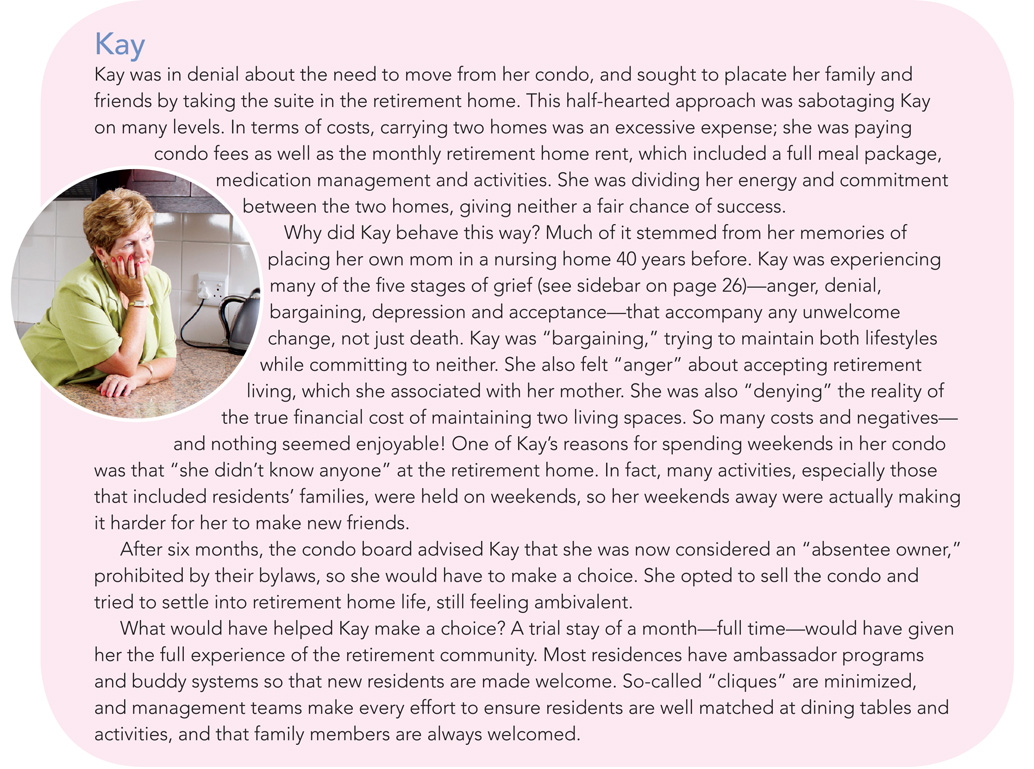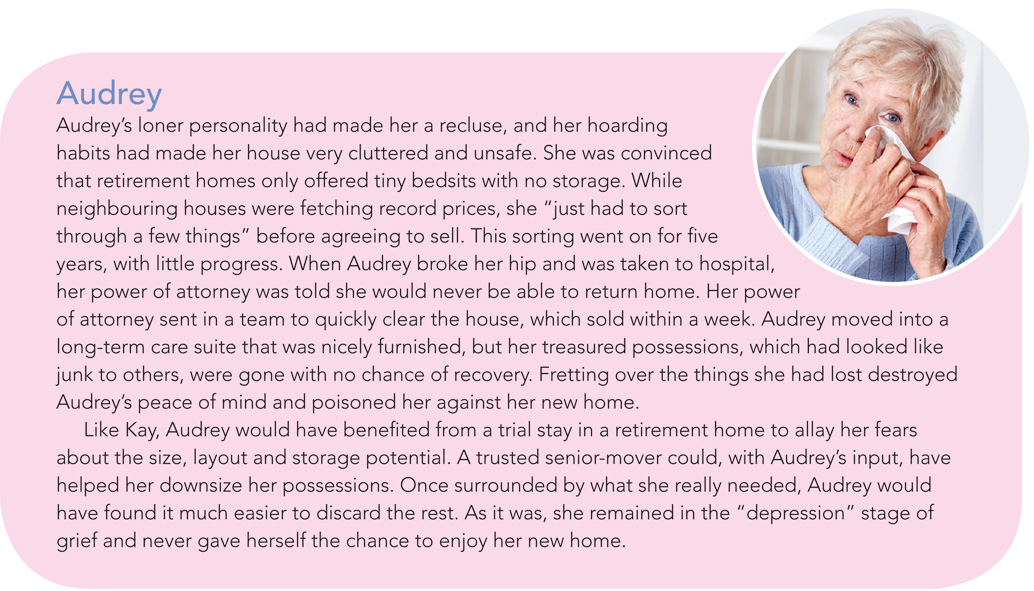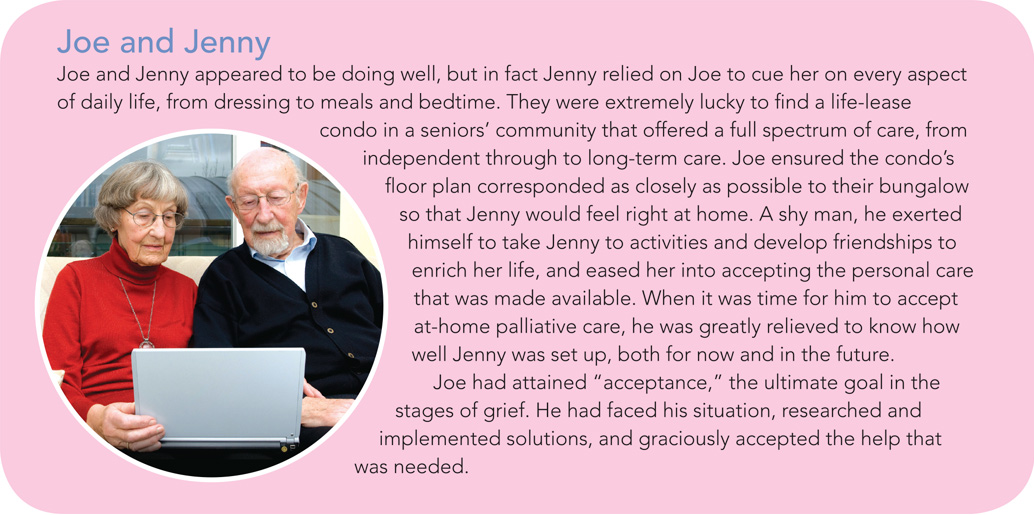It’s All About Timing
When is the best time to embrace retirement living? When is it time to accept help? Is it ever too late to make a lifestyle change?
You’d need a crystal ball to answer these questions—but let’s look at three real-life experiences for some clues us to when it’s time to make a change.
Kay enjoyed living in her condo, even after her husband died. But when friends sang the praises of a nearby retirement community many of them had joined, she
was intrigued and made a deposit on a spacious suite. She moved in—but although she spent most of the week there, she decided to go back to her condo on weekends “just for now.”
Audrey, always a loner, had lived in her little house for 50 years. In the past decade, most of her neighbours had died or moved, and she didn’t approve of the “monster houses” going up all around her, or the new, noisy young families moving in. She was managing alright until she slipped and broke her hip while rolling the recycling bin down her snowy driveway. Sadly, Audrey never went home again.
Joe and Jenny had been inseparable for more than 60 years. Jenny  was experiencing mid-stage dementia, but they functioned well as a couple. When Joe received a terminal diagnosis of liver cancer, he knew he’d have to act fast to get both of them into a supportive environment, both for his palliative needs and for Jenny’s long-term well-being.
was experiencing mid-stage dementia, but they functioned well as a couple. When Joe received a terminal diagnosis of liver cancer, he knew he’d have to act fast to get both of them into a supportive environment, both for his palliative needs and for Jenny’s long-term well-being.
The triggers that drive seniors to seek help vary, but the most common are the death of a spouse and illness in themself or their spouse. In other cases, doctors, family and friends may have noticed  memory loss, poor self-care or mobility challenges. Seniors themselves might feel the “too much effort” syndrome around shopping, meal preparation and housework, or feel lonely as friends or family aren’t around. Even the loss of a driving licence can invoke a sense of isolation and make everyday activities too much of an effort.
memory loss, poor self-care or mobility challenges. Seniors themselves might feel the “too much effort” syndrome around shopping, meal preparation and housework, or feel lonely as friends or family aren’t around. Even the loss of a driving licence can invoke a sense of isolation and make everyday activities too much of an effort.
While few seniors opt for assistance too early, many wait too long and find their options for housing, support and care are limited. What can our three scenarios teach us about timing?
What can we learn from our three situations?
• Listen to advice from trusted friends and advisors. Is it time, and I just can’t see it?
• Analyze where you are in the stages of grief. Try to determine why you are in that stage and how you can move ahead. Get professional advice from a therapist, family doctor or clergy to help clarify your path.
• Research your options before you need to know them. Talk to friends and advisors—where have others moved to, what is their experience?
• Understand all aspects of the care situation you are considering—costs, services, amenities, admission requirements, size and layout, its ability to cope with special requirements such as restricted diets, and whether it accepts pets and provides parking.
• Try before you buy! Always do a trial stay. Talk to other residents and their families. Watch, listen and learn. Talk to the management team for help.
• Timing is everything. Make sure time is on your side!
Pat Irwin, BA, AICB, CPCA, is President of ElderCareCanada.













